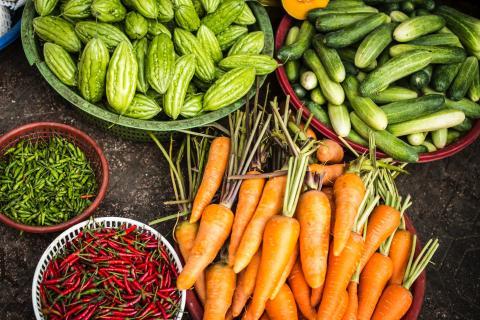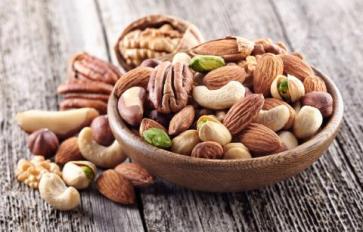
Gardening has many health benefits. Among them are boosts to self-esteem, stress reduction, calorie-burning and heart-healthy physical activity, improved hand strength and coordination, and financial savings (when you eat what you grow), UNC Healthcare points out. Gardening can also help people bond with family, friends, and community members. And, M. vaccae, a soil bacterium, has been shown to ease skin allergies and also improve mood, Discover Magazine reports. If the gardening is organic, the lack of exposure to chemicals in the cultivation and consumption of food is yet another boon. But, can organic gardening improve the lives of people with substance use disorders in prison?
A report from an organic gardening program at a high-security prison in Northamptonshire, England, shows that this fruitful activity helped more inmates pass their mandatory drug tests. As reported by Food Tank and Tree Hugger, drug test failure rates at HMP Rye Hill fell from about 30 percent to close to zero during the one year of its organic gardening programming. The garden initiative at the site is run by a charity called Garden Organic. Due to a new burst of government funding in 2010 for addiction rehabilitation efforts for incarcerated individuals in the UK, HMP Rye Hill was able to partner with Garden Organic in developing an onsite garden-based substance abuse intervention tool.
The analysis of the program identified several areas and ways in which the gardening affected inmates, including “building an environment that supports recovery and change,” “building health and wellbeing,” and “building opportunities for learning,” among others. Improved self-esteem and self-control, a sense of shared responsibility and community, and increased communication were found to develop among inmates who participated.
“Makes my head feel clearer, being in the garden. I like the fresh air, so I’m not always inside. I like the people on the project. I like to be moving around; I like the principle of work and don’t like being still,” one imprisoned gardener said. “It’s a great emotional journey for me as someone who has a number of underlying mental health issues,” said another.
Eating and sharing the organic produce also benefited the diet and health of the incarcerated community. A more natural, chemical-free diet also makes sense for people working to give up drug-use, Garden Organic’s Operations Manager Steve Thomson, pointed out to Food Tank. "They [like] the chemical-free approach to food growing, because many of them are trying to rid their bodies of chemical dependencies.” He said the gardeners also benefited from learning to work with nature’s rhythms and pace, learning to be patient as opposed to instantly gratified.
Some of the imprisoned people may also continue to garden once they are released, either for their own benefit or as a vocation. “I need to learn something new which I can use on release, something I’d enjoy doing as a job, plus, I need to do something constructive here and now in order to maintain my recovery,” one incarcerated gardener said. Another summed up the benefits of the experience in this way: “Since I’ve been on the gardens, I feel better in myself and have been a lot happier.”








